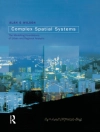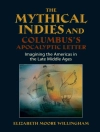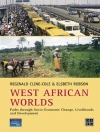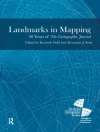This book aims to integrate new technologies and adaptation tools into the process of smart city planning. It also emphasizes the value and importance of modern technologies such as Io T and data science as a smart technology for the formation of a smart city. The authors believe that various technologies in a smart city will reduce all the problems for the sustainable growth and future prospects of the city.
The first section of this book discusses the innovation of new technologies (AI, data science, block chain, etc.) that has flourished in recent decades which will make the city smarter. This section also describes that block chain and Io T (Internet of Things) are two transformative technologies that can greatly impact smart cities by enhancing security, improving transparency, and enabling efficient management of resources.
The second section of the book explains about the uses of AI tools and smart technologies (like waste management, public safety and security) for the development and management of smart cities. This chapter also describes AI-powered systems that are integrated into smart buildings to optimize energy usage, enhance occupant comfort, and improve building management. These systems can adjust lighting and HVAC settings based on occupancy, learn user preferences, and provide personalized energy efficiency recommendations.
The third portion of the book investigates the recent challenges and barriers of smart city that have been faced by the smart cities in the recent decades. This section also describes various challenges and barriers for the implementation of Io T sensor, AI technologies, etc., for the formation of a smart city. The future prospects of a smart city are the main theme of the last chapter. In this section, an attempt has been made about the future vision and outlook of the smart city. This chapter also describes different approaches (like smart grid, societal smart city, smart city model, etc.) for the future planning and management of the city.
Table of Content
Section I. Defining the Smart City and Path to Smart Urbanization.- Chapter 1. Shaping the Next Generation Smart City Ecosystem: An Investigation on the Requirements, Architecture, Applications, Security and Privacy, and Open Research Questions.- Chapter 2. Smart City for Kids: Creating a decent city for children in Indonesia.- Chapter 3. Visualizing Smart Cities: Unveiling Insights through Graphical Analysis and Algorithmic Precision.- Chapter 4. Mapping the Landscape of Smart City Research: A Bibliometric Analysis.- Section II. Digital Transformations: Harnessing Technology for Smarter Cities.- Chapter 5. An Overview on IIo T Related to the Modern Panorama of the Industrial Field.- Chapter 6. Exploring Smart City Implementation and Hegemony: A Focus on Indonesia.- Chapter 7. Artificial intelligence-based Metaverse as a virtual model of Smart Urbanism: Unveiling the challenges for Cybersecurity.- Chapter 8. Digital Twin: A Transformative Tool for Smart Cities.- Section III. Sustainable Urban Ecosystems: Integrating Circular Economy and Planning in Smart Cities.- Chapter 9. Smart sustainable city initiatives and the circular economy: exploring upcycling organisations in Cape Town.- Chapter 10. x EMS: Control towers of optimal energy flow management for smart city realization.- Chapter 11. Innovating Urbanity: The Synergy of Smart Cities and Circular Economy in India.- Chapter 12. Smart city initiatives entangled in Political Priorities: Case-based Analysis on Visakhapatnam, Andhra Pradesh.- Section IV. The Synergy of Tomorrow: Smart Cities and Sustainable Futures.- Chapter 13. The Way Forward to Smart Cities and Sustainability in Hong Kong: Opportunities and Challenges.- Chapter 14. New Urban Technology towards Energy Harvesting and Environmental Initiatives for a Smart City.- Chapter 15. Shaping Intuitive E-Governance: Perspectives from a Smart City in a Developing Nation.- Chapter 16. Green Buildings and Smart Cities: A Perfect Harmony of Sustainability and Progress.- Chapter 17. Evolving Paradigms of Smart Resilient Cities: Strategic Integration of Smart Technologies.
About the author
Dr. Sushobhan Majumdar is an Assistant Professor at Pandit Raghunath Murmu Smriti Mahavidyalaya, affiliated with Bankura University. West Bengal, India. He is an Applied Geographer with a Doctoral Degree from the Department of Geography, Faculty of Science, Jadavpur University, Kolkata. He is currently working on research on the Geography of Cities with its planning and development. His principal areas of research include ‘Urban Geography’, ‘Social Geography’, ‘Regional Development and Planning’, ‘Remote Sensing and GIS’ and ‘Geography of Transport’. He was also engaged in various developmental projects under the Socio-Economic Planning Unit of Kolkata Metropolitan Development Authority (KMDA) under the Government of West Bengal. He has published 49 research papers in different journals and proceedings and edited volumes of national and international repute. He has presented papers at more than 25 national and international seminars and conferences in India and abroad. He has delivered special or invited lectures in various national and regional programmes. He is now the editor of different publication houses like Springer, Royal Society of Chemistry, Elsevier, Wiley, Taylor and Francis Group, etc. He is a life member of the Geographical Society of India, the National Association of Geographers of India (NAGI), the Institute of Indian Geographers (IIG), the Regional Science Association of India (RSAI), etc. Recently, he has been deeply engaged in surface temperature mapping and modelling of metro cities in India and their impact on the environment.
Boasting a distinguished career spanning more than 18 years in the educational and business sectors, Dr. Vinay Kandpal stands out as an authority in finance and a dedicated mentor at Graphic Era University in Dehradun, India. As a senior faculty member within the Department of Management Studies, he offers his profound expertise on a breadth of subjects encompassing financial studies, business management, and pedagogy. Dr. Kandpal’s academic credentials are noteworthy; he has earned both a D Litt (Post Doctoral degree) and a Ph D focusing on Finance from Kumaun University in India. Further enriching his scholarly background is his role as a Postdoctoral Fellow at PG Administracao-Paulista University – UNIP in Brazil. His zeal for research is evident through his extensive body of work, which includes authorship of over 62 scholarly articles and 10 books addressing varied themes ranging from sustainable practices to financial technology advancements, urban development strategies for smart cities, effective risk management techniques, principles of circular economy to initiatives aimed at promoting financial accessibility.
Dr. Leonidas Anthopoulos is an Associate Professor at the Business School of the TEI of Thessaly. Dr. Anthopoulos has IT research, planning and Management experience with the development and deployment of complex IT projects. In his previous job positions, as an Expert Counselor at the Hellenic Ministry of Foreign Affairs in e-government and e-diplomacy areas, as an IT researcher and manager at the Research Committee of the Aristotle University of Thessaloniki (Greece), Municipality of Trikala (Greece), Administration of Secondary Education of Trikala (Greece) and Information Society S.A. (Greece), he was responsible for planning and managing the development of multiple IT projects for the Greek Government and for various public organizations. Among them, it is worth mentioning the Smart City of Trikala (e-Trikala), the SYZEFXIS and Police-online projects, the central portal for the Hellenic Ministry of Foreign Affairs, etc. He is a member of various committees worth mentioning, including the ITU Smart City Focus Group, Associate Editor of the IJPADA journal (IGI-GROUP) and editor of book collections. He is the author of several articles published in prestigious scientific journals, book collections and international conferences. His research interests concern, among others, smart cities, e-government, Enterprise Architecture, Strategic Management, etc.












